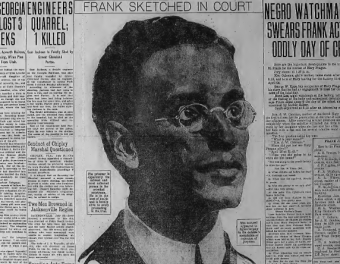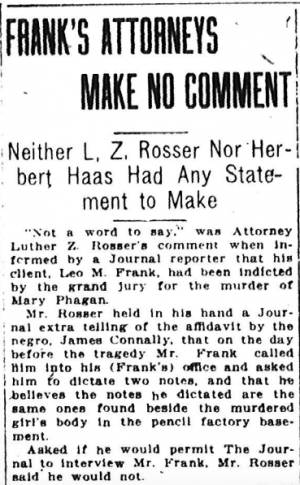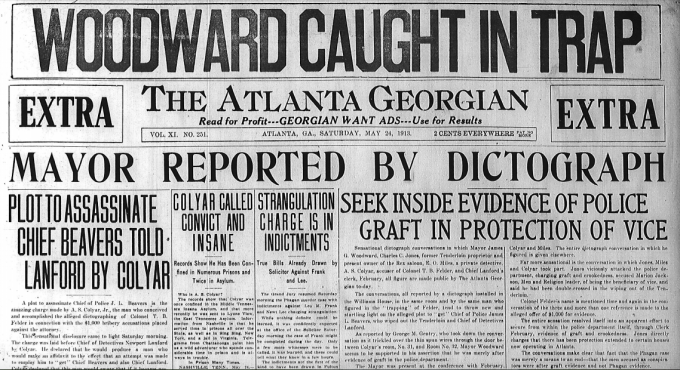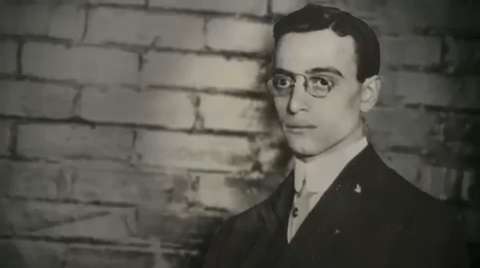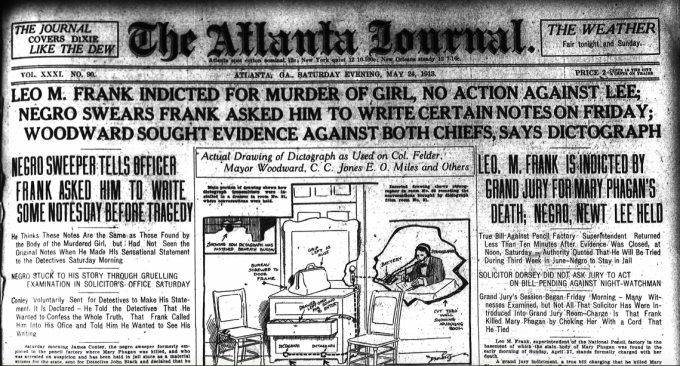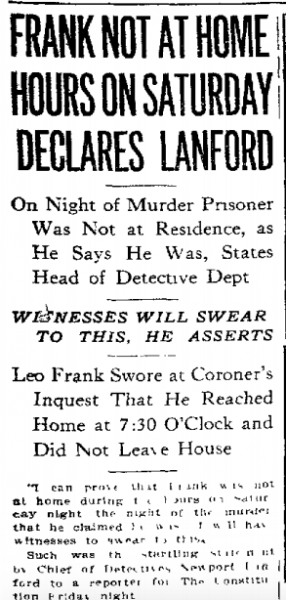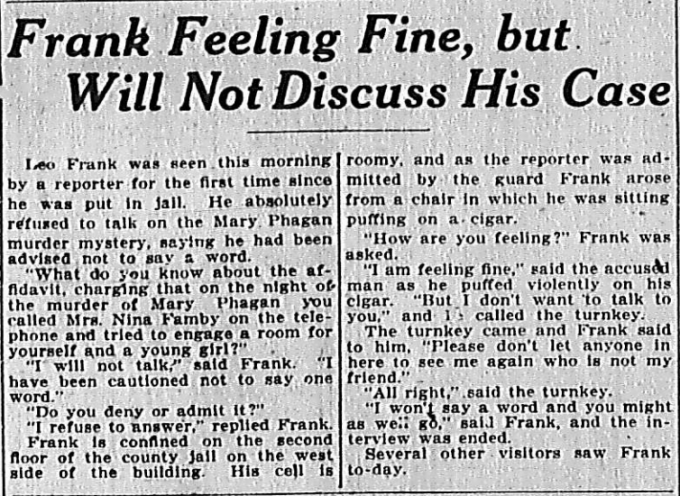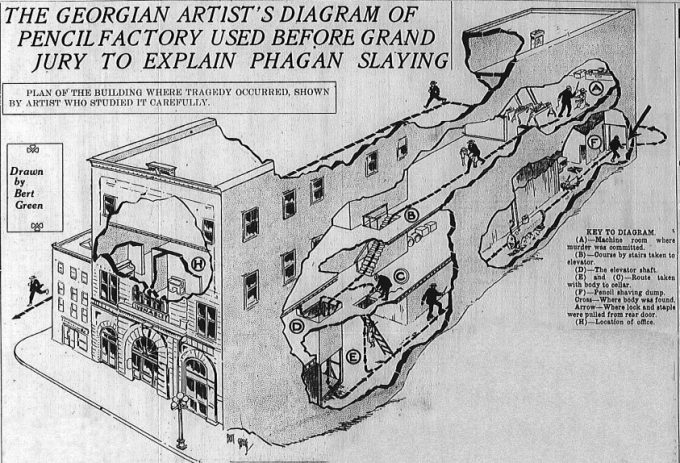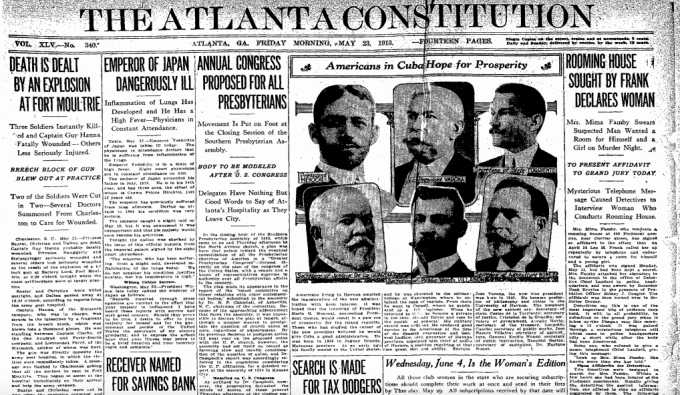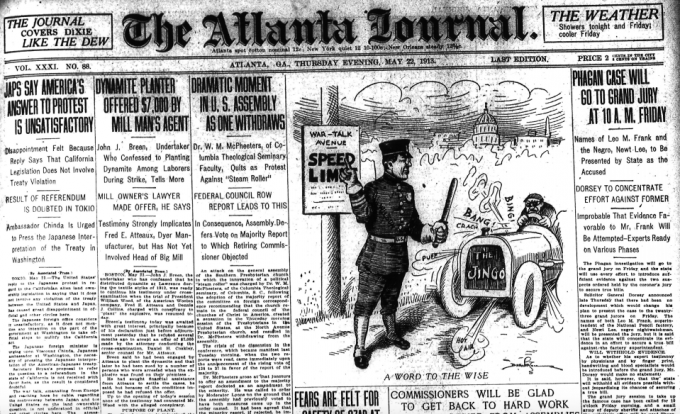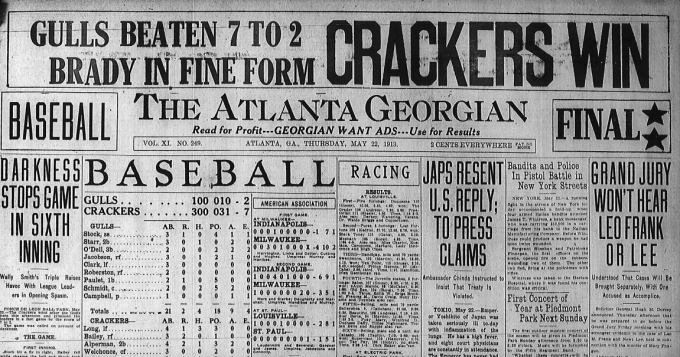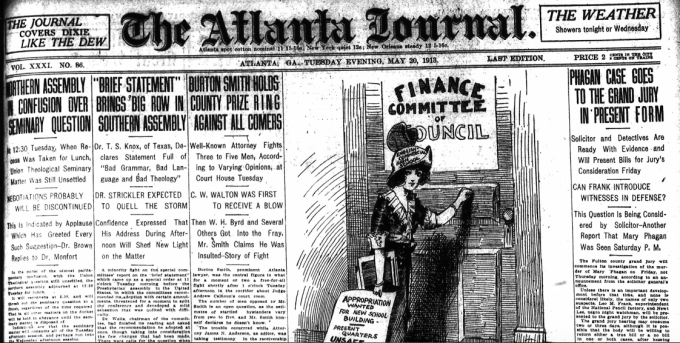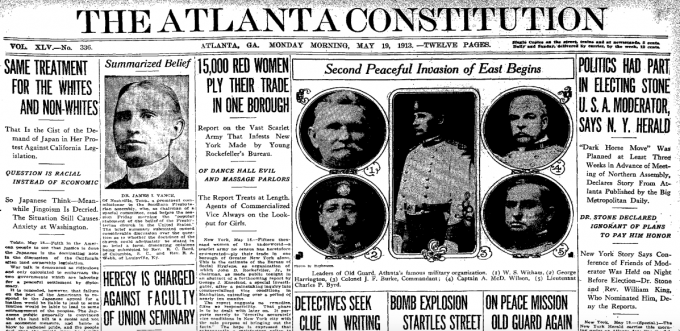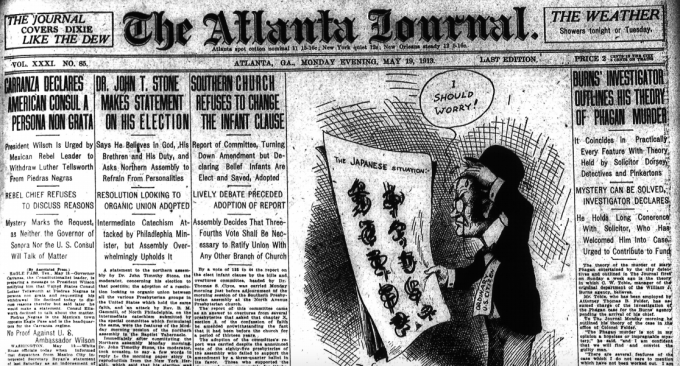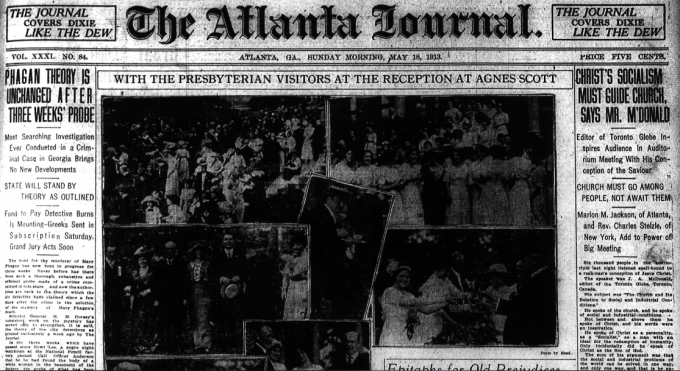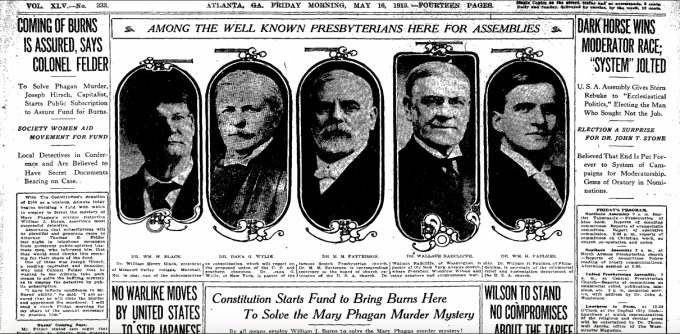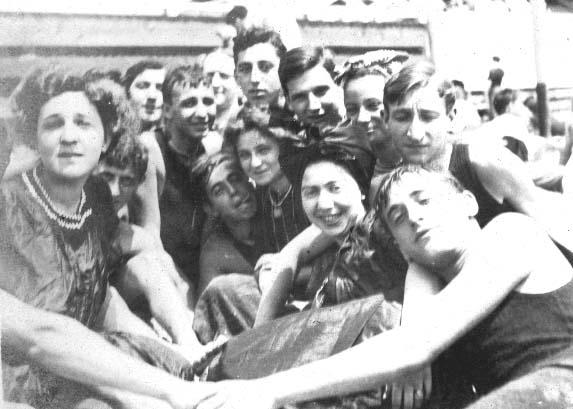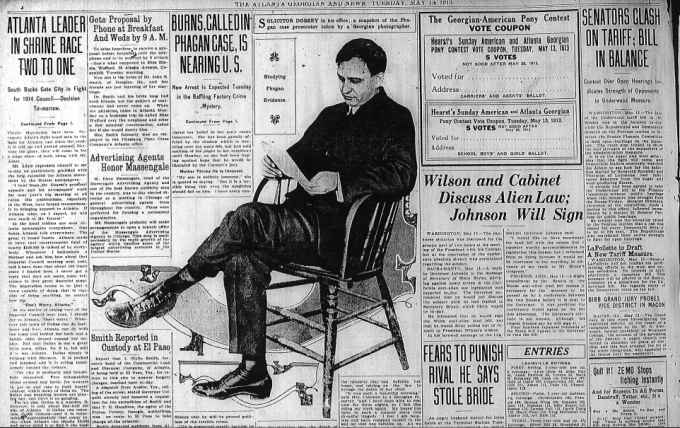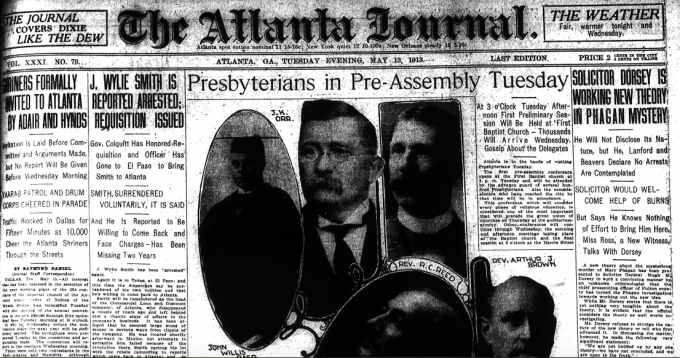Originally published by the American Mercury on the 100th anniversary of the Leo Frank trial.
Take a journey through time with the American Mercury, and experience the trial of Leo Frank (pictured, in courtroom sketch) for the murder of Mary Phagan just as it happened as revealed in contemporary accounts. The Mercury will be covering this historic trial in capsule form from now until August 26, the 100th anniversary of the rendering of the verdict.
by Bradford L. Huie
THE JEWISH ANTI-DEFAMATION LEAGUE (ADL) — in great contrast to the American Mercury and other independent media — has given hardly any publicity to the 100th anniversary of the murder of Mary Phagan and the arrest and trial of Leo Frank, despite the fact that these events eventually led to the foundation of the ADL. Probably the League is saving its PR blitz for 1915, not only because that is centenary of Leo Frank’s death by lynching (an event possibly of much greater interest to the League’s wealthy donors than the death of Mary Phagan, a mere Gentile factory girl), but also because encouraging the public to read about Frank’s trial might not be good for the ADL — it might well lead to doubts about the received narrative, which posits an obviously innocent Frank persecuted by anti-Semitic Southerners looking for a Jewish scapegoat.
For readers not familiar with the case, a good place to start is Scott Aaron’s summary of the crime, from his The Murder of Mary Phagan and the Lynching of Leo Frank, which states in part:
“ON SATURDAY morning at 11:30, April 26, 1913 Mary Phagan ate a poor girl’s lunch of bread and boiled cabbage and said goodbye to her mother for the last time. Dressed for parade-watching (for this was Confederate Memorial Day) in a lavender dress, ribbon-bedecked hat, and parasol, she left her home in hardscrabble working-class Bellwood at 11:45, and caught the streetcar for downtown Atlanta.
“Before the festivities, though, she stopped to see Superintendent Leo M. Frank at the National Pencil Company and pick up from him her $1.20 pay for the one day she had worked there during the previous week….
“Almost no one knew it at the time, but by one o’clock one young life was already over. For her there would never again be parades, or music, or kisses, or flowers, or children, or love. Mary Phagan never left the National Pencil Company alive. Abused, beaten, and strangled by a rough cord pulled so tightly that it had embedded itself deeply in her girlish neck and made her tongue protrude more than an inch from her mouth, Mary Phagan lay dead, dumped in the dirt and shavings of the pencil company basement, her once-bright eyes now sightless and still as she lay before the gaping maw of the furnace where the factory trash was burned.”

